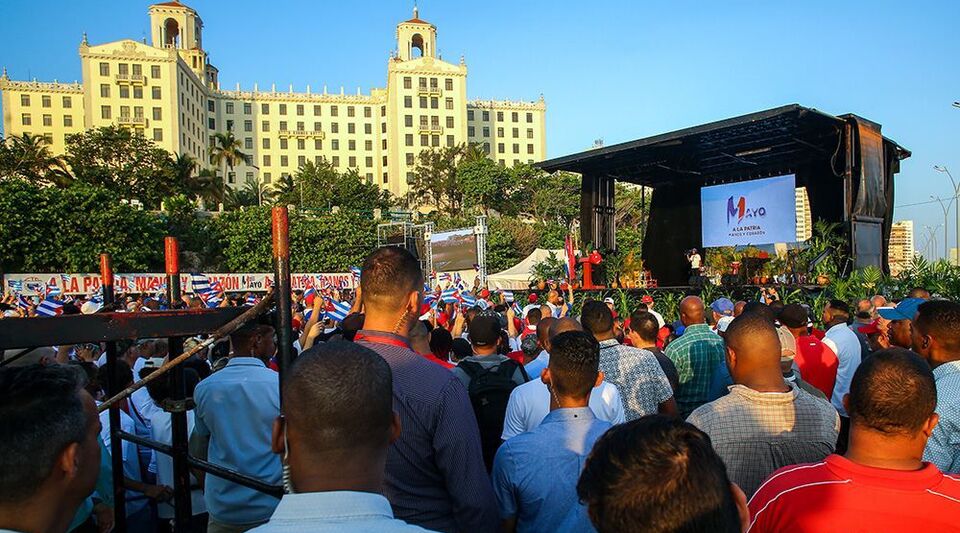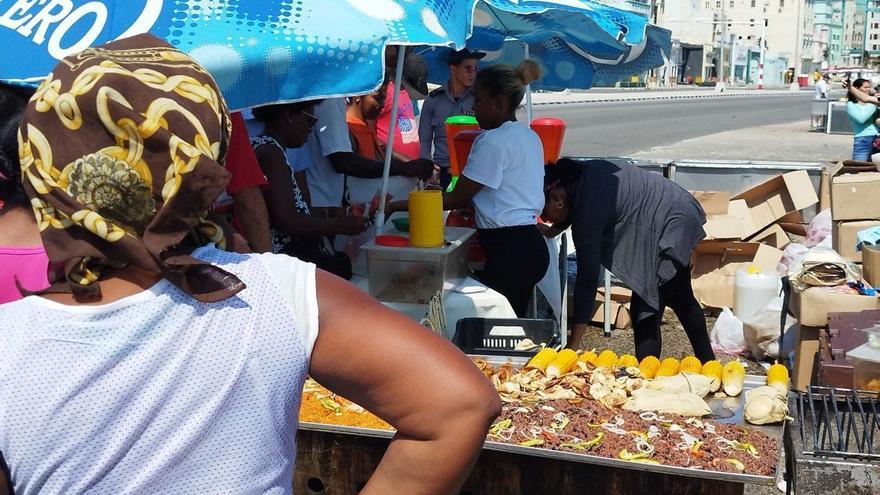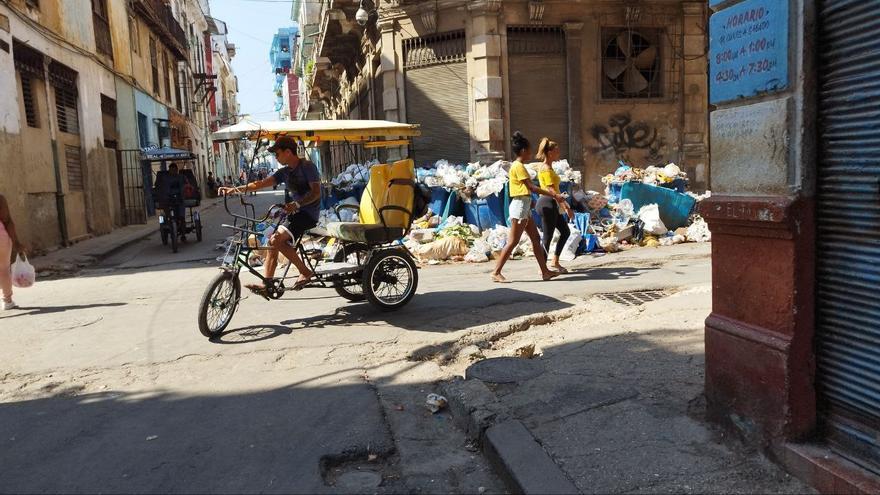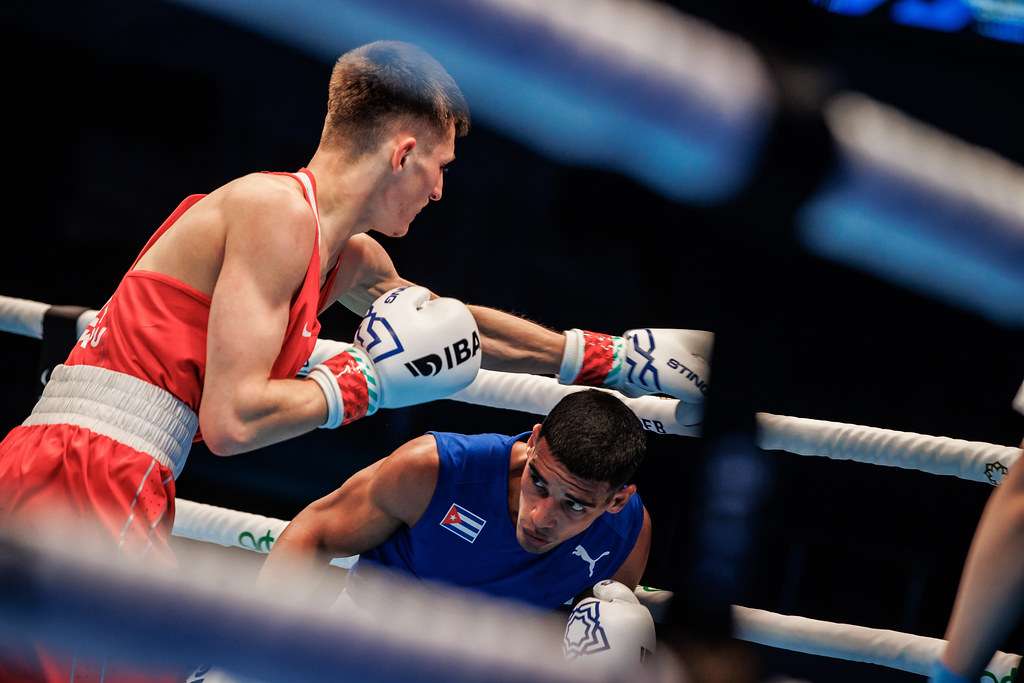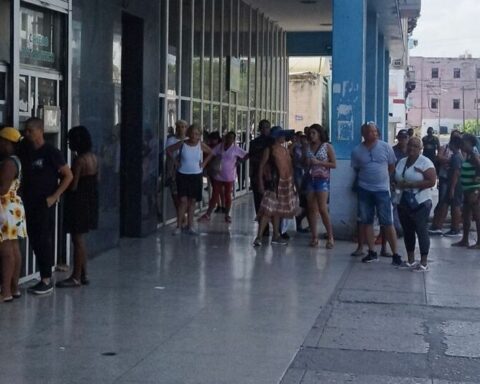It had not yet dawned in Havana when the first groups of “enthusiasts” from the May Day parade, postponed to this Friday the 5th, began to arrive on the Malecón. Regardless of the date change, the atmosphere was the usual: banners, white sweaters, posters, drumbeats, shouts and cameras of Cuban Television.
Less early risers, the leaders of the regime arrived calmly at the event, coming from the Palace of the Revolution: Raúl Castro, in his Armed Forces uniform, arrived escorted by Miguel Díaz-Canel –dressed, once again, in a sweater that emulated the Cuban flag – and by Prime Minister Manuel Marrero. Foreign Minister Bruno Rodríguez, Esteban Lazo and the president of the Central de Trabajadores de Cuba (CTC), Ulises Guilarte, appeared with bodyguards.
In the La Piragua tribune there were no shortage of evocations of Fidel Castro, whose pharaonic parades in the Plaza de la Revolución –constantly recalled this Friday by the official press– leave this year’s celebration in a very bad light, first affected by the fuel crisis and then postponed by a storm that hit the west of the Island on Sunday (and that finally It didn’t last until Monday).
The official recognized the serious crisis that the country is suffering when he spoke of the need to “improve the supply” of basic products, “control inflation” and limit the loss of purchasing power
The pro-government cameras insisted on focusing on the children and young people who participated in the event, referring to them as a “guarantee of continuity” and on the government’s top staff, virtually presided over by Castro. In fact, the reporters referred to the celebration as an “appointment with the country, with the continuity of the Revolution.”
When he got to the podium, Guilarte reviewed the “successes” of the CTC and regretted that the parade was not held in its “traditional setting.” Even so, he was satisfied that the Malecón had also been one of Fidel Castro’s favorite spaces during the “battle of ideas,” the ideological offensive that took place in Cuba at the beginning of this century.
He lashed out, as was to be expected, against the “blockade” of the United States and said that the authorities had been “consistent with the limitations on the insurance of fuel.” “We remain united around the Revolution,” assured Guilarte, who minutes earlier had been trying to get as close as possible to Raúl.
Of course, the official recognized the serious crisis that the country is suffering when he spoke of the need to “improve the offer” of basic products, “control inflation” and limit the loss of purchasing power.
There was no shortage of performances by several of the regime’s flagship singer-songwriters, such as Arnaldo Rodríguez, Mayito Rivera and Osdalgia, and two gravel improvisers, Héctor Gutiérrez and Aramís Padilla.
What was not seen on national television was the hundreds of foreigners the regime presumed would be taking part in the main event. The announcer made a brief allusion and the camera moved towards a space where the guests from the US and other countries were supposedly.
Meanwhile, in Centro Habana, one of those “small acts” that the government announced would multiply throughout the country was taking place instead of the large demonstration that used to take place in the Plaza de la Revolución.
You could not see, as in the days when there were no fuel crises, large buses, but the rows of small vehicles – state vehicles, taxis, gazelles, the occasional truck – parked on the main streets of the neighborhood were striking, such as Neptuno, Infanta and San Lázaro, and other adjacent ones. This showed that, in smaller quantities than in the good times, the protesters had been brought in on purpose, not by their own foot.
Even more surprising was the surveillance operation mounted in the area, with a multitude of officers in olive green uniforms and police patrols. In Belascoaín, what abounded were plainclothes officers, recognizable by their red or blue pullovers and their suspicious attitude. The entire Infanta street was guarded.
When the sun began to bite, at eight in the morning, the participants began to withdraw, and those who had attended the Malecón began to march towards the Avenida del Puerto.
As the authorities had announced, at that time they set up sales kiosks with food offers. Specifically, on the Malecón, in front of Parque Maceo, people queued up, enduring the incipient heat, and despite the high prices (a box with a little yellow rice with chicken, root vegetables and salad, at 180 pesos; a potato stuffed with something unrecognizable, at 50 pesos…)
In El Curita park, very close to the Capitol, passers-by seemed oblivious to the celebration. A man sitting on a bench was talking on the phone. “Where are you, because I don’t think it’s in the parade,” he said to his interlocutor, and after a brief silence: “I’m on my own, I don’t care about any of that.”
Meanwhile, in the heart of the capital, garbage continues to flood the corners this May 5th. Unlike other occasions, such as in the last call to the polls to renew Parliament, they did not withdraw it.
________________________
Collaborate with our work:
The team of 14ymedio He is committed to doing serious journalism that reflects the reality of deep Cuba. Thank you for accompanying us on this long road. We invite you to continue supporting us, but this time becoming a member of our newspaper. Together we can continue transforming journalism in Cuba.

